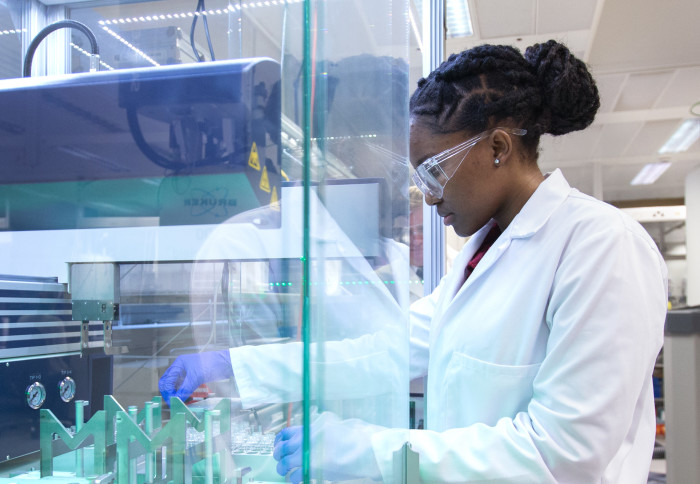African seed fund for research and education launched by Imperial

Imperial has launched a wide-ranging new seed fund for research and education projects with partners in Africa.
The College will provide funding for collaborations with partners at the African Institute for Mathematical Sciences (AIMS) and members of the African Research Universities Alliance (ARUA).
This spans 10 countries: Cameroon, Kenya, Nigeria, Ethiopia, Ghana, Rwanda, Senegal, South Africa, Tanzania and Uganda.
The Africa Strategic Research and Education Partnerships Fund aims to help kick-start new, innovative research and education projects between academics, researchers and students at Imperial, AIMS and ARUA member universities.
“This new Fund will strengthen links and increase the number of collaborations between Imperial academics and scientists across Africa." Professor Maggie Dallman Vice President (International)
The research funding stream will support scientists with exploratory research, small-scale experiments or the development of prototypes.
It will also help academics and students visit a partner institute for up to two months to learn new techniques, analyse results and build stronger networks.
The education funding stream will support the development of innovative, inclusive and impactful online experiential learning opportunities for the future. This could include online delivery of practical laboratories, virtual field trips and fostering student entrepreneurship.
Imperial’s Vice-President (International) Professor Maggie Dallman said: “This new Fund will strengthen links and increase the number of collaborations between Imperial academics and scientists across Africa.
“Working with AIMS and ARUA we will enable academics and students to develop exciting research ideas and new innovations in education that bring great benefits to society.
“We look forward to seeing the pioneering projects that this Fund will support.”
Professor Wilfred Ndifon, Chief Scientific Officer at AIMS Global Network, said: "We are excited by the academic and research opportunities that the Seed Fund will provide to our students, academic staff and researchers.
"We are hopeful that the seeds that will be planted by the Fund will bring forth a bountiful harvest of collaborations, new knowledge, and innovations"
Ernest Aryeetey, ARUA Secretary-General, said: “We are excited with this partnership with Imperial as it is consistent with our mandate. Partnerships and networking have become essential arrangements for universities to leverage their resources for greater impact.
"I am hopeful that ARUA member universities will take advantage of the opportunities available through The Africa Strategic Research and Education Partnerships Fund as we seek to build The African University”.
Find out more about the funding and apply
Partners in Africa
AIMS is a pan-African network of Centres of Excellence for post-graduate training, research and public engagement in mathematical sciences. It was founded by Imperial Alumnus Prof Neil Turok (PhD Physics, 1986) and there are currently five centres across Sub-Saharan Africa. In 2020, Imperial and AIMS began a major partnership to train the next generation of African scientists.
ARUA, which was inaugurated in 2015, is an alliance of 16 top research-intensive universities across Sub Saharan Africa. ARUA is intended to develop local research excellence through collaboration to find solutions to the development problems of Africa.
Via its member institutions, ARUA operates 13 interdisciplinary Centres of Excellence across key thematic areas. Imperial researchers are collaborating with partners at several of the Centres to address shared global challenges, including the Centre of Excellence for Urbanization and Habitable Cities at the University of Lagos and the Centre of Excellence for Energy hosted at Stellenbosch University.
Collaborative research
Academics from Imperial, AIMS and ARUA are collaborating on a project to measure and mange air pollution in African cities.
Imperial's Professor Majid Ezzati and Dr Daniela Fecht, are working with colleagues to provide reliable timely information on air pollution in cities in Sub-Saharan Africa where there is a lack of data and traditional monitoring technologies cannot be implemented.
The network aims to co-develop an integrated digital urban air pollution monitoring system to inform evidence-based policies and social programmes to reduce air pollution.
Article text (excluding photos or graphics) © Imperial College London.
Photos and graphics subject to third party copyright used with permission or © Imperial College London.
Reporter
Stephen Johns
Communications Division